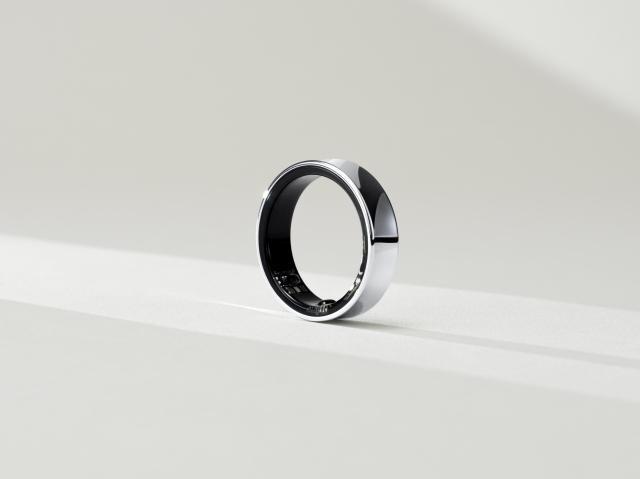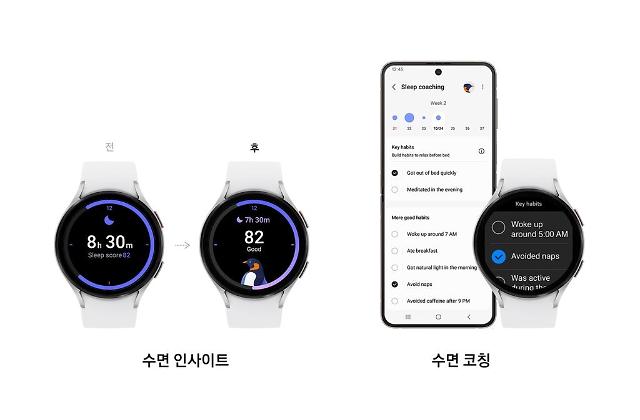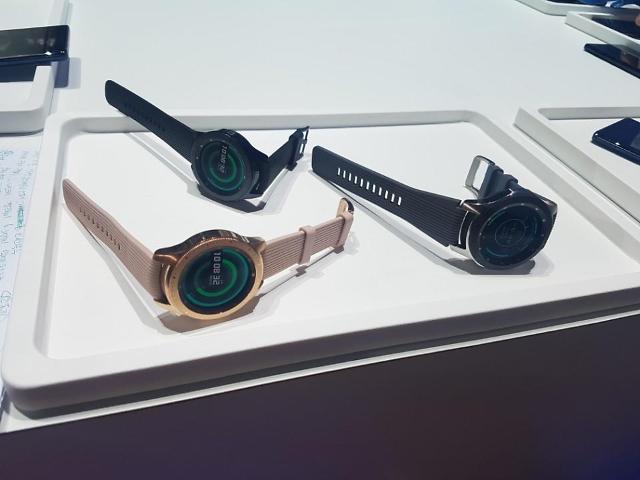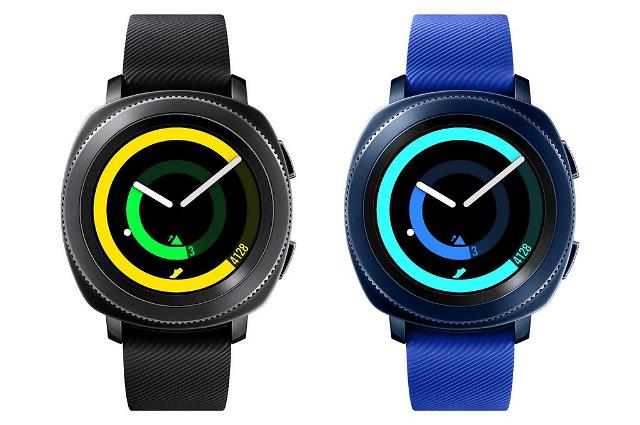
BARCELONA -- At the Mobile World Congress in Barcelona, Samsung attracted visitors through a smart ring designed to monitor health conditions. The wearable device called "Galaxy Ring" can be comfortably worn even during sleep.
Galaxy Ring, first revealed at the MWC 2024, is available in three colors -- black, gold, and silver. A total of nine sizes will be released to fit different finger sizes. Currently, the products are displayed inside a transparent acrylic casing to prevent information leakage. Samsung plans to release the artificial intelligence-based ring by the end of 2024.
The smart ring boasts the advantage of being more convenient to wear and suitable for extended periods compared to smartwatches. Samsung has previously developed "One UI 5 Watch," a smartwatch-based sleep care service that provides tips for better sleep habits such as reducing caffeine consumption. Users can check the time and quality of their sleep every day through their sleep score displayed on watches.
Over 2,400 global companies are showcasing AI and high-tech solutions at MWC 2024, which started on February 26. About 40 percent of the participants are not directly related to telecommunications and mobile sectors but encompass adjacent industries. Chinese tech giants Xiaomi and Huawei are also taking part in the four-day event.
Xiaomi and Tecno gained attention with their four-legged robots. The robot dog known as "CyberDog 2" displayed movements similar to actual dogs, such as extending their front legs to greet people. CyberDog 2 captivated visitors by performing backflips at the event. Techno also unveiled "Dynamic Robot 1," another quadruped robot with functionality similar to that of CyberDog 2.
165 South Korean companies are attending the exhibition. This is the fifth-largest number after Spain (696), the U.S. (432), Britain (408), and China (288). The country’s two major mobile carriers -- SK Telecom and KT – presented solutions related to urban air mobility (UAM) is a next-generation ecosystem that incorporates flying passenger vehicles in urban areas.
South Korean participation peaked at 222 companies in 2019, just before the outbreak of the COVID-19 pandemic. Subsequently, it declined to 108 in 2022 and rose slightly to 130 companies in 2023.
Copyright ⓒ Aju Press All rights reserved.




View more comments